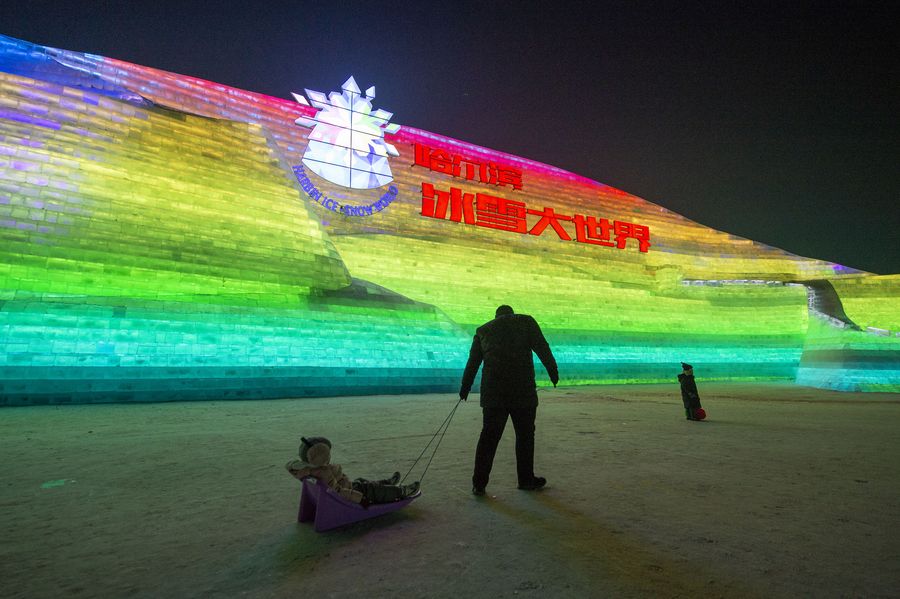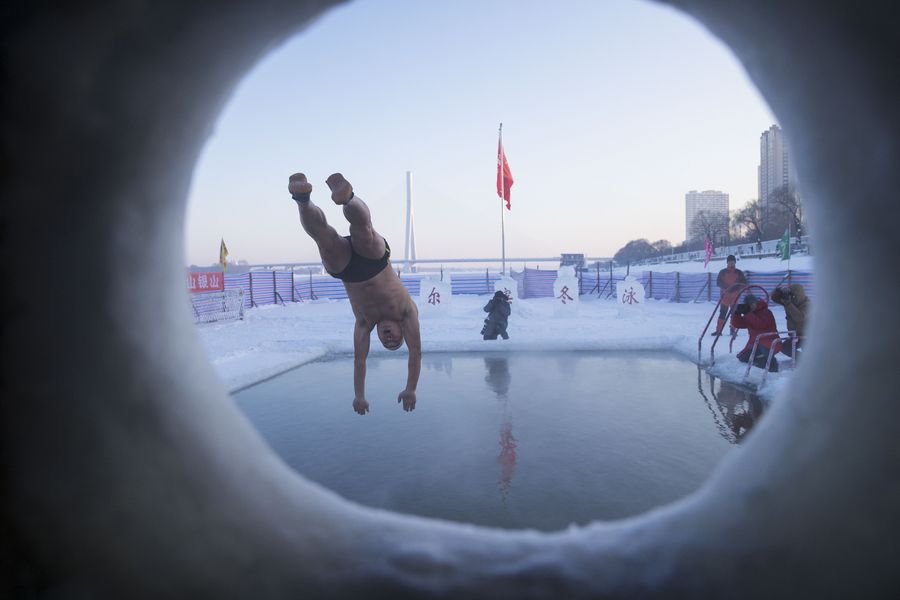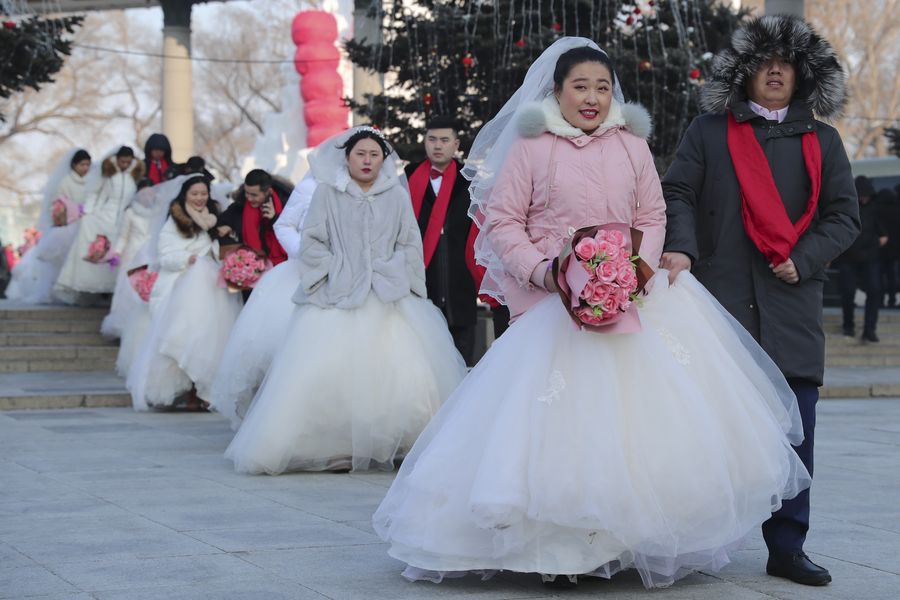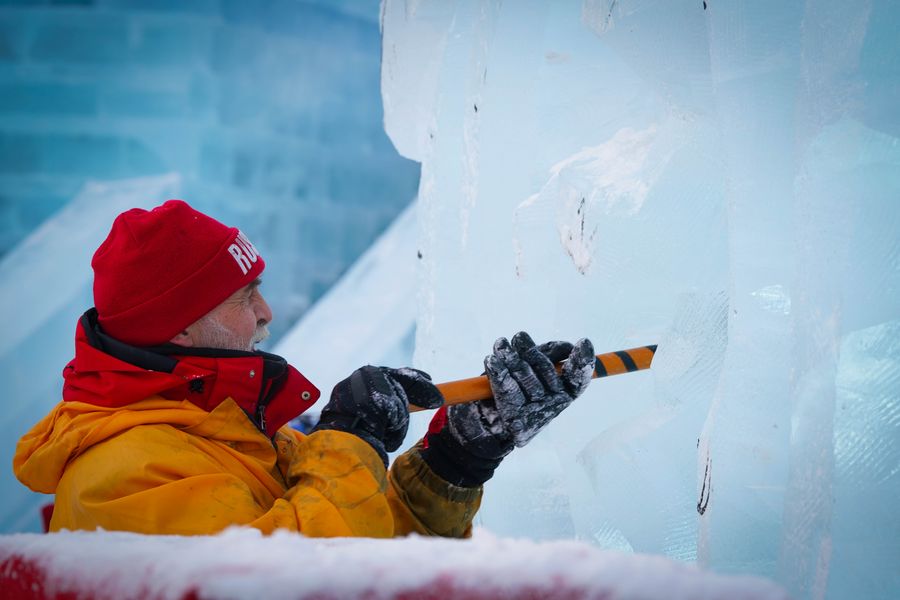
Aerial photo taken on Jan. 7, 2020 shows a night view of the 21st Harbin Ice-Snow World in Harbin, capital of northeast China's Heilongjiang Province. (Xinhua/Xie Jianfei)
The 2020 Harbin International Ice and Snow Festival dazzles visitors with fantastic ice sculptures and activities.
HARBIN, Jan. 8, 2020 (Xinhua) -- The 36th Harbin International Ice and Snow Festival opened in Harbin on Jan. 5, 2020, amid fireworks wandering between fantastical ice sculptures. As one of the world's four largest ice and snow festivals, it will continue through the end of February and overlap with the Chinese Spring Festival.

Fireworks explode to celebrate the opening of the 36th Harbin Ice and Snow Festival at Harbin Ice-Snow World in Harbin, capital of China's northernmost Heilongjiang Province, Jan. 5, 2020. (Xinhua/Zhang Tao)
First celebrated in 1985, the annual festival has drawn millions of visitors from home and abroad over the years with its spectacular installations and activities. Covering 600,000 square meters, the Ice-Snow World features with glittering ice sceneries taking about 220,000 cubic meters of ice blocks from the Songhua River. The festival also hosts plenty of activities including Ice Sculpture Competition, International Ice-Assemblage Championship, Sun Island International Snow Sculpture Art Exposition, ITU Winter Triathlon World Cup, and marks with a snow-themed mass wedding and brave swimming competitions in the frozen Songhua River.

People enjoy themselves at the 21st Ice-Snow World in Harbin, capital of northeast China's Heilongjiang Province, Dec. 23, 2019. (Xinhua/Xie Jianfei)

A winter swimmer jumps into the pool in Harbin, capital of northeast China's Heilongjiang Province, Jan. 1, 2020. (Xinhua/Zhang Tao)

A sculptor takes part in the 9th China Harbin International Ice-Assemblage Championship in Harbin, northeast China's Heilongjiang Province, Jan. 3, 2020. (Xinhua/Zhang Tao)

Contestants work on a snow sculpture at the Sun Island International Snow Sculpture Art Expo park in Harbin, northeast China's Heilongjiang Province, Jan. 3, 2020. (Xinhua/Wang Song)

Athletes compete during the elite men group of the 2020 Harbin ITU Winter Triathlon World Cup in Harbin, capital of northeast China's Heilongjiang Province, Jan. 4, 2020. (Xinhua/Zhang Tao)

Couples attend a group wedding ceremony in Harbin, capital of northeast China's Heilongjiang Province, Jan. 5, 2020. (Xinhua/Zhang Tao)

Children have fun at the 36th Harbin Ice and Snow Festival at Harbin Ice-Snow World in Harbin, capital of China's northernmost Heilongjiang Province, Jan. 5, 2020. (Xinhua/Wang Song)

A competitor carves ice sculptures during the 34th Harbin International Ice Sculpture Competition at Harbin Ice-Snow World in northeast China's Heilongjiang Province, Jan. 6, 2020. (Xinhua/Wang Song)
The International Ice and Snow Festival has become a name card of the "ice city" Harbin and a major contributor to its booming winter tourism. According to an agency's report at a forum in Harbin, there were 224 million tourists in the 2018-2019 winter season, bringing a tourism revenue of 386 billion yuan.

Visitors take horse-drawn carriages on the frozen Songhua River in Harbin, capital of China's northernmost Heilongjiang Province, Jan. 7, 2020. (Xinhua/Xie Jianfei)

Aerial photo taken on Jan. 7, 2020 shows a night view of the 21st Harbin Ice-Snow World in Harbin, capital of northeast China's Heilongjiang Province. (Xinhua/Xie Jianfei)■



